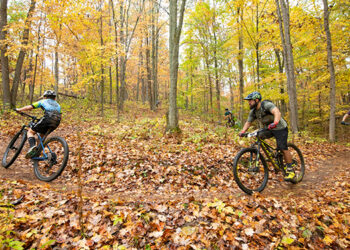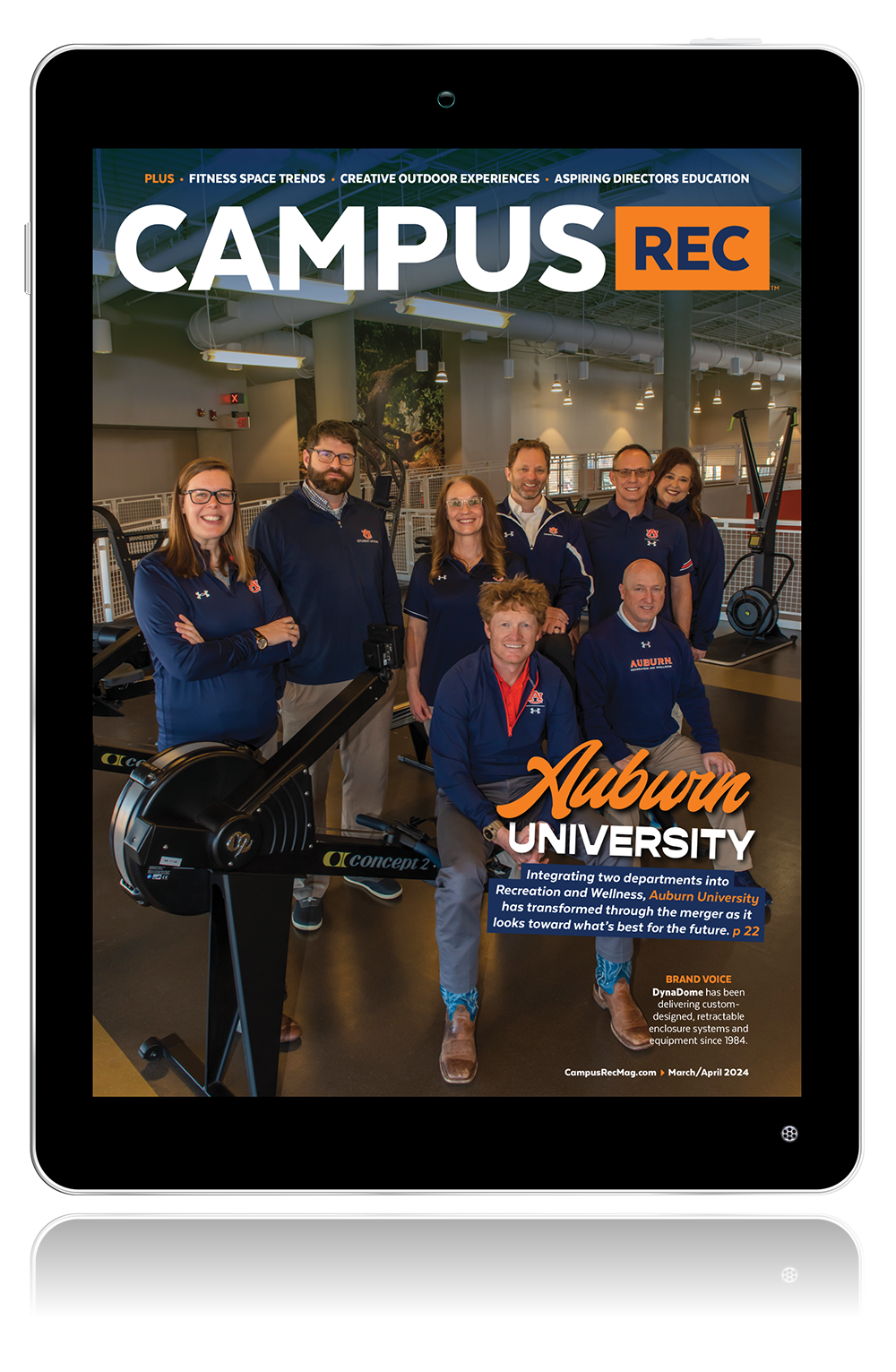We were proud to share Part One of this story on the University of Washington’s (UW) experience with a brand-new outdoor program. For Part Two, we’re excited to share insights, and highs and lows — though there are mostly highs — that came along with conceptualizing and executing an outdoor program on a campus that did not have one before. Enjoy this interview with one of our associate directors and the program’s founder, Matt Jensen.
Matt Newman (MN): How did you get into the field? What is your background in campus rec and outdoor programming?
Matt Jensen (MJ): I am a product of a university outdoor program. While attending the University of Nebraska Omaha, a friend spotted a flyer for a kayaking class hosted by the Outdoor Venture Center (OVC), and once in the class I was hooked after the first wet exit. I applied for a student job, and for the next four years I worked in every possible area of the OVC that I could from Trip Leader to Climbing Center Student Manager.
After graduating, I interned with Idaho State University’s Outdoor Adventure Center and Cooperative Handicapped Outdoor Group (CWHOG). I floated wild rivers, climbed at the City of Rocks and even became an adaptive water skiing instructor. It was awesome!
EXTRA CREDIT: Getting creative is key in ensuring the success of an outdoor rec program.
I eventually ended up in the Pacific Northwest and accepted the climbing manager position at UW. There was not an outdoor program on campus at the time which seemed so strange to me. In a place like Seattle with amazing access to wild spaces, there wasn’t a formal program to aid students in finding adventure. For the next nine-plus years I worked toward the goal of developing a program.
MN: What did you see as the opportunity at UW to develop an outdoor program from scratch?
MJ: It was clear in the mid-2000s that the creation of an outdoor program wasn’t a department priority. Knowing it was a long game, I dedicated my time to creating a climbing program that was hard to ignore. I would meet with other folks inside and outside our division in hopes I could build a critical mass or just forge partnerships for when the program would finally come to be. I worked with the leadership of outdoor recreation clubs within and outside of the recreation department focusing on the benefits and opportunities more resources could provide. Everyone was so supportive of the concept and of me, but no one had the capacity to push for change.
The origin of UWild Adventures required stars to align at both the administrative and student levels. That moment was in 2015. Our department was under new leadership, and I had the opportunity to apply for a student-managed innovation fund. Without these two things coming together I am not sure the program would have come to fruition.
MN: What is one specific piece of wisdom you’d pass along to others?
MJ: The biggest lesson learned for me is summed up by the famous Eisenhower quote, “Plans are worthless, but planning is everything.” It was my experience that the more time planning for the desired outcome, the less time was spent with “in the moment” decision-making when things did not go as planned. The less time making decisions on alternative routes to our desired outcome, the more time available for the other tasks. Another way of putting it is to move slow to move fast.
MN: Do you have any lessons learned to share?
MJ: Some other quick hitters include:
1. The massive effort put into developing the backend of a program will likely go unnoticed by the students, and that is the best compliment.
EXTRA CREDIT: Planning ahead can help your facility stay open — no matter the crisis.
2. Developing a program and developing programming are not always the same. Programs require a lot of external influence which creates a lot of moving targets.
3. Knowing that a process will have moving targets is half the battle. The other half is developing the decision-making process that will enable a program to maneuver quickly. I firmly believe that if all planning processes — program or programming — start with outlining measurable desired outcomes then decisions are made around those outcomes. If the most direct path to that outcome becomes obstructed it will seem easier just to alter the outcome. Do not alter the outcome, but rather build a new pathway around the obstruction.
4. There will be wins and losses when developing or redeveloping a program. However, those losses are opportunities to reimagine. Don’t dwell on so-called failures. Get to work on the next success.
5. Obtaining permits on federal lands is hard, so if possible start somewhere else. We put as much effort into locating state lands as we did attempting to gain access to major destinations on federal lands only to be denied and needing to look elsewhere.
6. Forge a great relationship with your campus’s risk department staff. They will play a role whether you want them to or not, so bring cookies and your A-game.
7. There is no such thing as plug-and-play. What worked at one campus may not at another.










